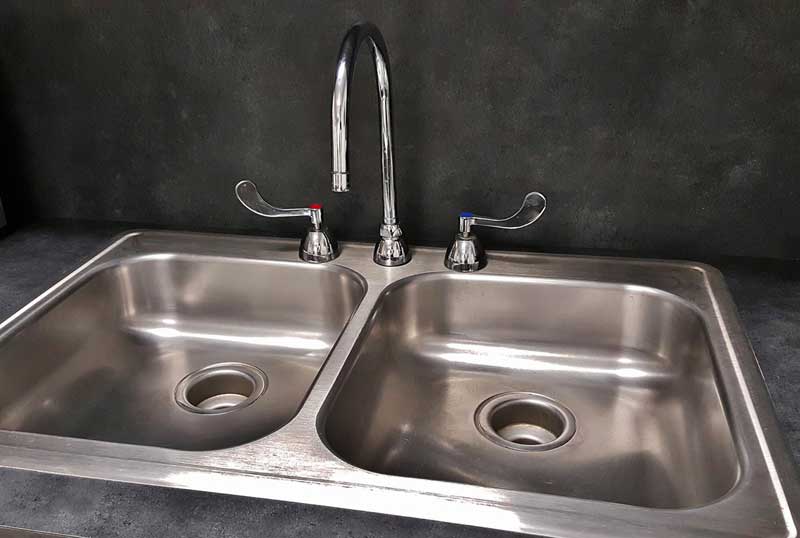Although it is called stainless steel this workhorse material for kitchen appliances cookware and surfaces can stain from time to time on a stainless steel kitchen sink for example you may have had a cleaning mishap that left brown corrosion or rust stains on the metal.
What causes rust on stainless steel sink.
Rust is one of those substances that sometimes appears in unexpected places such as porcelain and stainless steel sinks.
Stainless steel doesn t rust i can t say the same thing about tin made cans.
When it comes to sinks those rusty spots are often caused by other items.
If you ve ever left cast iron pots in the sink while wet it is likely you ve woken up to the menacing sight of rust decorating a once perfectly varnished stainless steel sink.
Chromium can protect stainless steel if the localized concentration is in excess of 12 but if you cover the stainless surface.
Rust inside the sink.
The overspray can land on the sink and cause rusting.
There s been people who noticed circled rust marks over their stainless steel sinks.
If you take care to clean your stainless regularly you should never have issues with rust.
Or have you seen a stainless steel container or sink rust.
Cast iron cookware and food cans left in the sink are two major culprits that can cause rust spots to show up on an otherwise rust free sink.
Stainless steel full name stainless acid resistant steel is a collective name for more than 100 kinds of steel materials.
For a stainless steel sink in fairly good shape rust spots found in or on the sink are usually from other metal items.
In fact in the harsh environment for a long time stainless steel will also rust and the probability and.
Stainless steel is steel mixed with chromium which protects it against rust.
Do not use cleaners with bleach to clean counter tops adjacent to the sink.
Stainless steel resists corrosion by a process called passivation which is similar to why aluminum doesn t rust.
However i believe the other answers have insufficiently discussed how.
After talking to them what came out was that one of their family members kept a tin can on the sink for a long time which ultimately caused rust on their sink.
Stainless corroding in the absence of a corrosive element such as chlorine is usually from very tiny steel particles touching the stainless steel surface.
Stainless is not impervious to rust but most stainless steel rust spots arise from neglect and misuse.




























